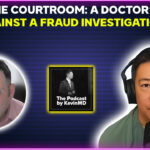Attending academic conferences as a medical student offers a wealth of opportunities. Whether it’s networking, finding potential mentors, deepening your knowledge of specialties, or simply exploring new cities, conferences provide unique experiences that can significantly shape your career. As a medical student, I had the chance to attend both regional and national vascular surgery conferences through travel scholarships, and I want to share the lessons I learned in the hope that they will guide others—especially those unsure about balancing conference attendance with a demanding medical school curriculum or those curious about vascular surgery.
1. Apply for travel scholarships: Investing in your future. Many vascular surgery conferences offer travel scholarships, ranging from $1,000 to $2,000, along with complimentary registration for medical students. These scholarships are often funded by generous donors with the goal of supporting future generations of vascular surgeons. Although not all conferences provide such support, I strongly encourage checking their websites and reaching out to inquire about available scholarships. Attending regional societies, like the Western or Eastern Vascular Society, can offer more intimate, community-focused experiences with reduced financial burden. Additionally, receiving a travel scholarship can enhance your CV, serving as concrete evidence of your dedication and passion for the field.
2. Embrace diverse conferences: Expand your horizons. When I started medical school, vascular surgery wasn’t even on my radar. It wasn’t until I had the chance to shadow a vascular surgeon that I began to appreciate the field. Since then, I’ve been drawn to vascular surgery, especially its focus on caring for critically ill and underserved populations. Attending regional conferences allowed me to connect with faculty and research opportunities, which led to collaborations and even a manuscript publication. My advice to fellow students: attend conferences in a variety of specialties, even those that might not immediately align with your current interests. You never know what connections and opportunities will come your way, potentially reshaping your career path.
3. Personalize your experience: Navigating conference overwhelm. Conferences can feel overwhelming, especially if it’s your first time attending or if you’re going solo. To make the most of your time, review the conference agenda in advance and create a personalized schedule. This allows you to focus on the sessions that align with your interests. Conference apps, like Whova, can be incredibly helpful for marking key events. Additionally, be intentional about networking. Many conferences provide a list of attendees and speakers—use this to strategically plan who you want to connect with.
4. Network with purpose: Strategic interactions matter. Networking is the cornerstone of conferences. Before attending, review the list of participants and identify those whose work aligns with your goals. Prioritize connecting with them, whether it’s for potential mentorship, research opportunities, or career advice. For example, I met my research mentor at a conference, which led to a year-long collaboration and a publication. With thoughtful preparation, conferences become treasure troves of opportunity, enabling you to reconnect with contacts at future events and continue building valuable relationships.
5. Maintain connections post-conference: Keep the momentum. After the conference, don’t let your connections fade. Sending thank-you notes or emails expressing gratitude for insightful conversations can go a long way in building long-lasting relationships. Regularly updating mentors on your accomplishments helps keep the relationship alive, ensuring you have a strong support system as you navigate your career. This follow-up is key in helping people remember you and stay invested in your growth.
6. Embrace the social aspect: Build connections beyond the lectures. Conferences aren’t just about academic sessions—they’re also a chance to forge personal connections. Exploring the host city with colleagues can lead to memorable experiences that enrich your network in unexpected ways. For example, getting caught in the rain with fellow students while attending a Washington, D.C., conference turned into a fun, bonding experience with my newfound friends. These social moments can often lead to strong professional relationships down the line.
7. Be strategic during clerkship: Align conferences with your interests. During clinical years, missing a day of clerkship to attend a conference can be a logistical challenge. Be selective about which conferences to attend, focusing on those that align with your evolving interests. If you’re invited to present at a conference, use it as a chance to highlight your commitment and time-management skills. And if missing a clinical day is unavoidable, communicate with your school to make arrangements to make up the time.
8. Cultivate everlasting relationships: Your network is your legacy. As you attend more conferences, remember that your professional network is an ever-evolving entity. Cherish the relationships you build and stay in touch with mentors and peers. One day, these individuals may become advocates who help guide you toward exciting opportunities in your career. Your network can truly be one of your most valuable assets as you move forward in healthcare.
In the grand tapestry of medical education, conferences are the threads that weave together knowledge, opportunities, and relationships. Embrace them, learn from them, and let them guide your journey in healthcare. I encourage you to share your own insights and experiences about attending conferences—what have you learned along the way?
KiBeom Kwon is a medical student.


















![Community cooperatives offer a solution to the affordable health care crisis [PODCAST]](https://kevinmd.com/wp-content/uploads/Design-4-190x100.jpg)

![Teaching joy transforms the future of medical practice [PODCAST]](https://kevinmd.com/wp-content/uploads/Design-1-1-190x100.jpg)
![“Disruptive” behavior is often a cry for help from depleted doctors [PODCAST]](https://kevinmd.com/wp-content/uploads/Design-1-190x100.jpg)
